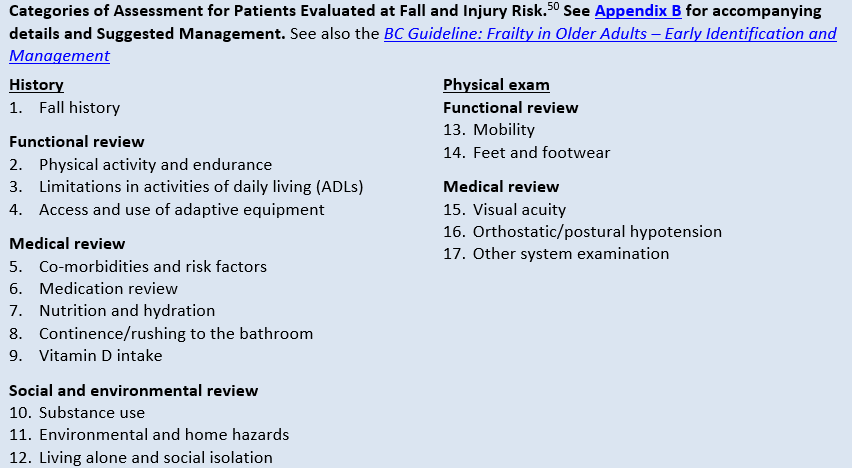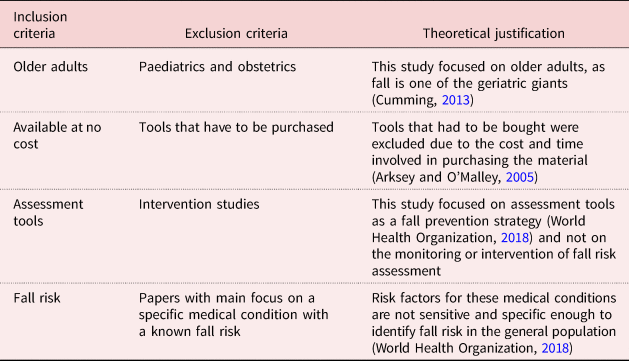The 3-Minute Rule for Dementia Fall Risk
The 3-Minute Rule for Dementia Fall Risk
Blog Article
Dementia Fall Risk Things To Know Before You Buy
Table of ContentsThe Main Principles Of Dementia Fall Risk All about Dementia Fall RiskNot known Factual Statements About Dementia Fall Risk Dementia Fall Risk Things To Know Before You BuyThe Best Guide To Dementia Fall Risk
Nevertheless, based upon symptoms and signs, such as evidence of head injury or a brand-new focal neurologic deficiency, calculated tomography or MRI of the mind may be shown - Dementia Fall Risk. An evaluation for reasons for syncope must be carried out only if there is strong uncertainty, as when it comes to frequent, unusual drops
Medical care companies make use of a fall threat assessment to identify your risk aspects for dropping and make handy recommendations. Some people try to minimize their autumn danger by restricting their task or making every effort to be extra mindful. These well-intentioned behaviors aren't sufficient - Dementia Fall Risk. A fall risk analysis is essential due to the fact that knowing which factors increase your possibilities of dropping assists you: Minimize your threat of dropping or harming on your own.
Optimize your ability to relocate and be active. Maintain a healthy and balanced, independent life. All grownups 65 years and older need to have an initial loss danger screening. Your doctor might ask you whether you: Feeling unsteady when standing or strolling. Have dropped in the previous year. Stress over dropping. If you answer yes to any one of these questions, your doctor will certainly advise an extra, extra detailed assessment.
The Buzz on Dementia Fall Risk

Discover this comprehensive nursing treatment plan and administration guide to properly prevent danger for falls among individuals. Acquire crucial understanding regarding the nursing analysis, nursing medical diagnosis, and objectives specifically customized to clients that go to danger for drops. A is defined as an event that leads to a person coming to rest inadvertently on the ground or floor or other reduced level (THAT, 2021).
According to the Centers for Disease Control and Prevention (CDC),, creating over 34,000 fatalities for that age. Falling is the 2nd leading reason of death from unintentional injuries worldwide. Death from drops is a major and endemic problem amongst older people. It is estimated that loss fatality rates in the united state

Annually, over 800,000 clients are hospitalized due to falls. Registered nurses play a major duty in stopping succumbs to their clients via education and learning, assessing fall danger, creating more secure atmospheres, and giving interventions in avoiding injuries from falls. A number of threat factors and conditions contribute to falls, including the following:. Aged 65 years and older; reduced arm or leg prosthesis; use assistive tools such as pedestrian, crane, and mobility device; living alone.
Autumns are due to numerous variables, and a holistic technique to the specific and environment is essential. Expect an individual is taken into consideration at high risk for falls after the screening.
The 9-Second Trick For Dementia Fall Risk
A requires using a validated device that researchers have examined to be valuable in naming the sources of drops in an individual. As an individual's health and conditions modification, reassessment is needed. The degree of loss danger can be determined making use of the assessment of inherent and extrinsic factors. Requirement assessment tools can also be utilized Get More Information (discussed listed below).
People are extra likely to drop once more if they have sustained one or even more drops in the past six months. The older population is at boosted danger of fall-related readmissions important source based on a study recognizing the factors predictive of repeat drops connected results (Prabhakaran et al., 2020).
Additionally, complication and damaged judgment increase the person's chance of dropping. The capability of individuals to secure themselves from falls is influenced by such factors as age and advancement. Older people with weak muscle mass are a lot more most likely to drop than those who keep muscle strength, flexibility, and endurance. These adjustments consist of minimized aesthetic function, impaired shade understanding, adjustment in center of mass, unsteady gait, reduced muscle toughness, reduced endurance, modified depth perception, and postponed feedback and response times.
9 Easy Facts About Dementia Fall Risk Shown
Much less comparison sensitivity was quite related to both increased prices of falls and various other useful source injuries, while decreased visual skill was only connected with increased autumn price (Wood et al., 2011). Sensory understanding of ecological stimuli is extremely important to security. Vision and listening to impairment limitation the patient's capability to perceive risks in the surroundings.
Older adults that have inadequate equilibrium or difficulty walking are a lot more most likely to drop., or various other medical conditions and treatments., and use of psychotropic drugs (Stanmore et al., 2013).
Report this page